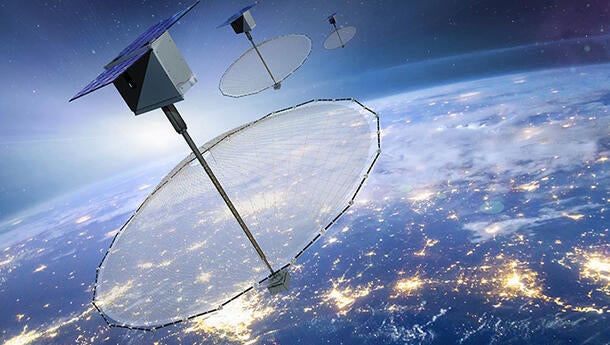Keeping Legacy Systems in the Fight
Securing the competitive advantage in today’s complex warfighting environment requires superior awareness of the space domain. Since 2002, L3Harris has kept the nation’s SDA optical sensors and systems reliable, available and relevant with cost-efficient sustainment and modernization solutions delivered under the U.S. Air Force’s System Engineering and Sustainment Integrator (SENSOR) contract.
Over the years, we have honed our management processes for SSN operations, maintenance and sustainment to eliminate risks to budgets and schedules. We continue to expand our services to encompass new ground-based SDA sensors and U.S. space battle management command and control capabilities. In early 2020, we were awarded the Maintenance Of Space Situational Awareness Integrated Capabilities (MOSSAIC) contract, the SENSOR follow-on program.
Delivering Unmatched Expertise
Today, L3Harris offers the most comprehensive array of SDA system knowledge and expertise in industry. For the SSN, we have sustained and modernized the mission-critical radar at Eglin Air Force Base and the telescopes in the Ground-Based Electro-Optical Deep Space Surveillance (GEODSS) System. We were the original equipment manufacturer for the GEODSS optical tube assembly and mount. We have deployed modifications to all GEODSS System sites; maintained daily operations at a test telescope facility in Yoder, Colorado; and modified every major GEODSS subsystem.
Since 2010, we have provided engineering and technical support to the Space Surveillance Telescope (SST)program, which included aggregating the technical baseline of the R&D system an developing the sustainment capability for its transition to an operational system. Our innovative scientists developed, built, operationalized and operated the commercial SpaceSentry global electro-optical sensor network. The tasking, collection, processing, exploitation and dissemination (TCPED) system continually monitored the entire geostationary belt. SpaceSentry performed millions of observations every night, maintaining the L3Harris commercial space catalog.
Advancing Technology for Better Intelligence
As a global aerospace and defense technology innovator, L3Harris advances many specialized technologies. We develop and implement solutions for all phases of the TCPED process and are a recognized expert in solutions for advanced optics relevant to SDA. For example, our experience in optical beam control has made us the leading supplier of high-energy laser beam director solutions. The Air Force Research Laboratory, Directed Energy Directorate’s (AFRL/RD) Relay Mirror Experiment Project used a laser beam director designed, built, deployed and refurbished by L3Harris. Other examples of key L3Harris experience include:
- Development and operationalization of new sensor technology that allows GEODSS to achieve higher sensitivity for dim object detection and tracking.
- Demonstration of the military utility and applicability of highly capable, space-based time delay integration electrooptic sensors.
- Development of a broadly applicable architecture for advanced laser communication technology to enhance SDA optical networks.
- Demonstration of dual-band optical hardware and software applications for daytime SDA.
Investing In Small Business Innovation
With internal investment, L3Harris created an SDA Innovation Center and is funding small business R&D that targets the SDA mission’s most pressing challenges. We utilize a joint government-industry working group to choose high-impact investments and provide a venue for innovative small business partners to directly demonstrate technologies to customer stakeholders. As the technical readiness level of a small business innovation increases, the capability can be integrated into customer processes for prioritization, road mapping and quick-turn fielding.
Transitioning R&D to Operations
While developing new technologies is important, the ability to transition them into operations in a timely and cost-effective manner has become essential. Today’s multidomain military operations demand decisions and actions at an unprecedented pace and scale – and that requires putting new capabilities into the hands of warfighters faster than ever before. As demonstrated throughout SENSOR, we rapidly and cost effectively transfer R&D results into operational capabilities by combining our expertise in system operations, maintenance and sustainment with our understanding of SDA technologies. We build teams of subject matter experts to work collaboratively to develop the right integration path strategy. When possible, we collaborate across our customer communities to leverage existing programs and solve national space security needs.
Applying a Portfolio Management Approach
L3Harris treats customer SDA assets as a critical set of interdependent sensors and support systems that are part of a larger space situational awareness and space enterprise. This enterprise includes ground and space-based, Department of Defense and Intelligence Community (IC) command and control systems, and various other IC systems that support the SDA mission. Our approach recognizes this larger enterprise, these multidomain missions and the interdependencies of the systems, and it aligns the portfolio with the Space and Missile Systems Center’s Enterprise, Partnerships, Innovation, Culture and Speed (E.P.I.C. Speed) aspirations.

